Create blocklet composition
What is a Combined Application#
Thanks to the capabilities provided by the Blocklet Development Platform, we can combine multiple Blocklets together, each Blocklet being both an application and a component. Each Blocklet can be combined by other Blocklets, and can also combine other Blocklets.
In a combined Blocklet, each component is a separate service, and they make you feel like you are using a complete application through a unified configuration and UI.
Our create-blocklet also provides the ability to quickly create combinatorial Blocklet seed projects.
Creating Monorepo#
create-blocklet enables the ability to develop combinatorial Blocklets by putting multiple Blocklet projects together for management by means of monorepo.
After executing the create-blocklet command in the terminal and entering the project name to enter the template selection phase, we choose multiple templates, here we choose react-dapp vue-static express (with the ability of the blocklet platform, we can combine different front-end frameworks together).
Select a project as the main application, here we choose react as the main application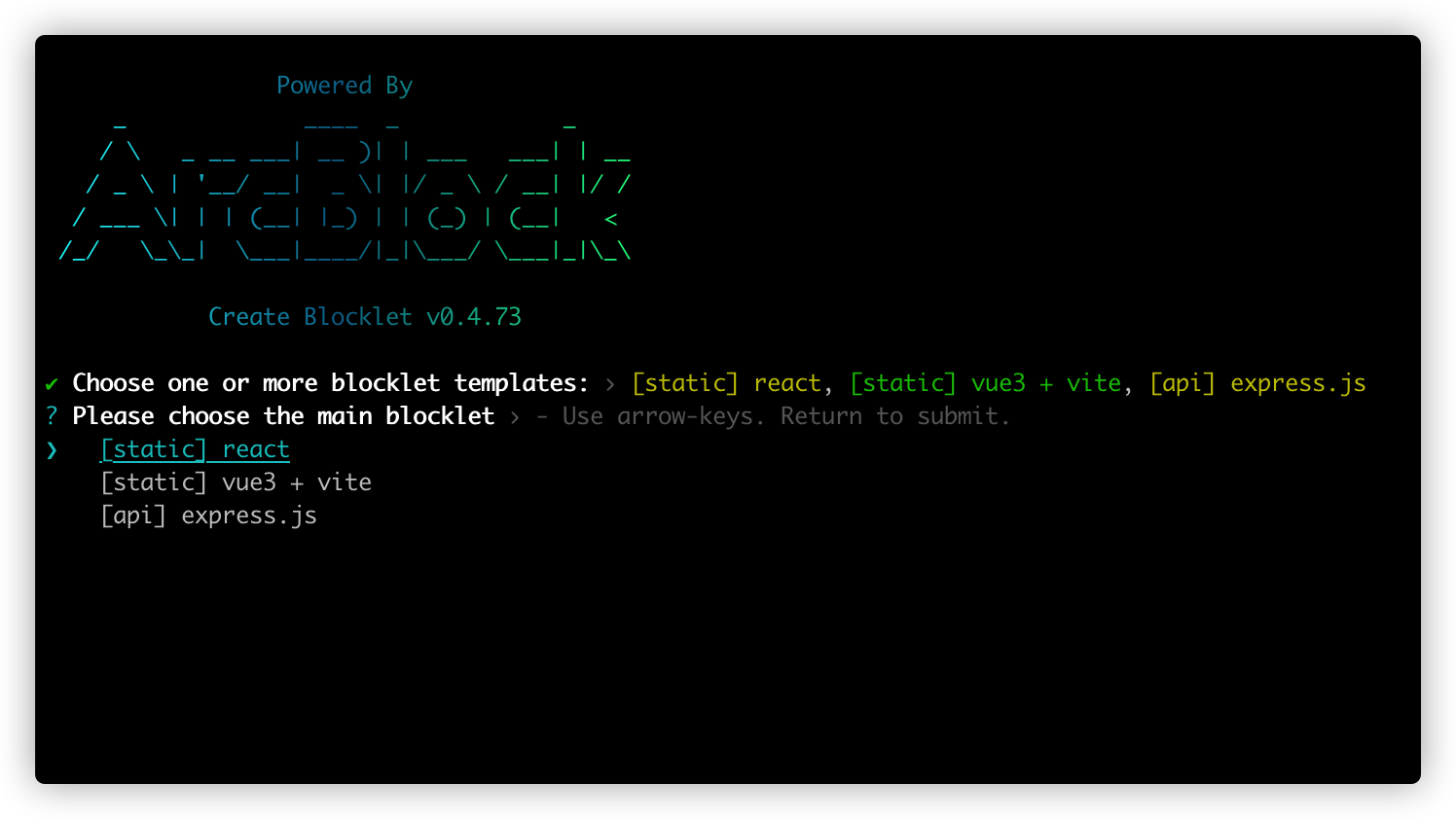
Enter the email, author, and other information and press enter to confirm. After waiting for the file to be created, we get a Monorepo type project directory containing the three Blocklets I chose in the previous step.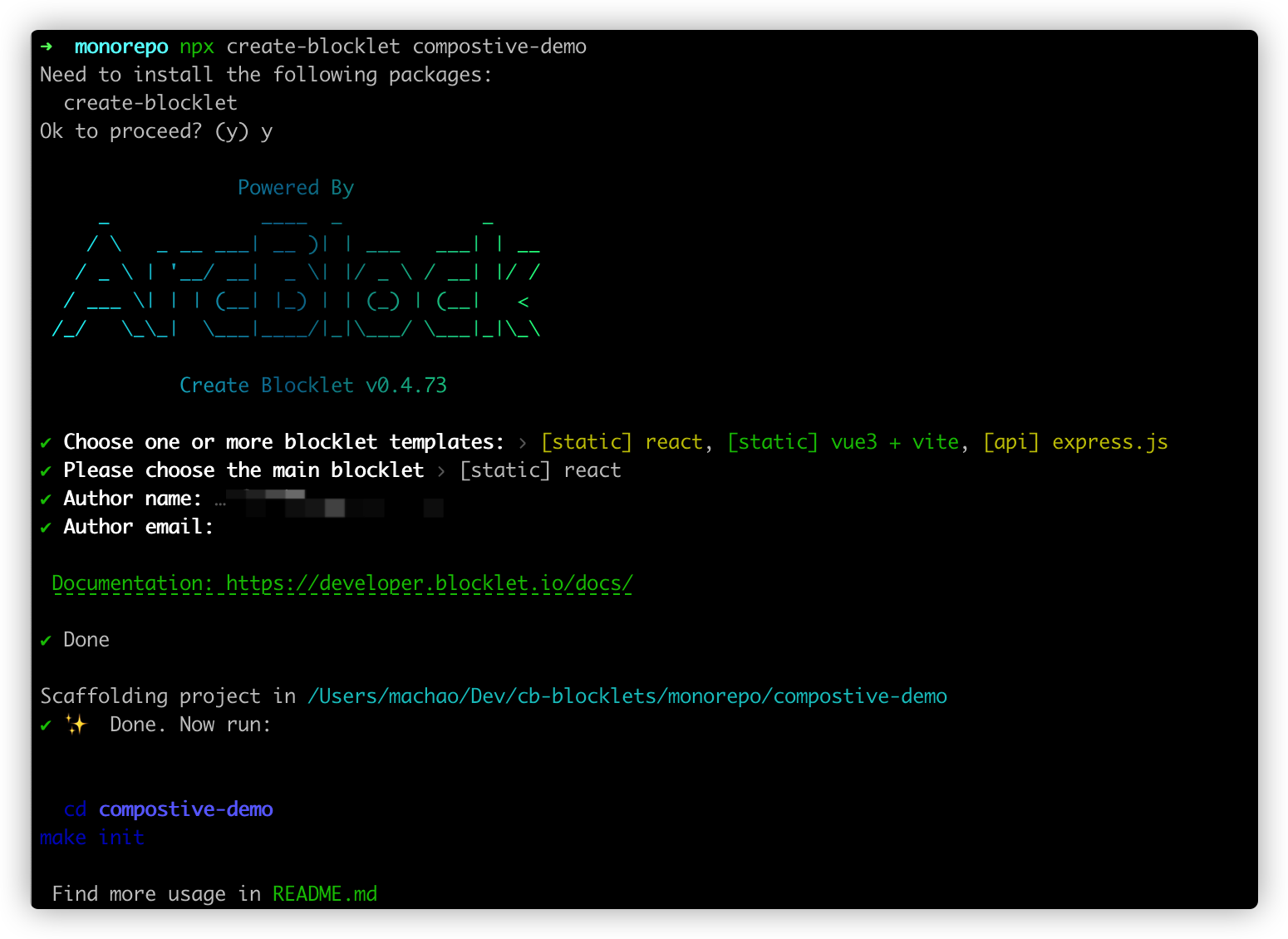

Start the main application#
Following the prompts in the terminal, we go to the root of the project and execute make init to install the dependencies needed for the project.
Go to the main application directory in blocklets and execute the npm run dev command to start the main application in development mode
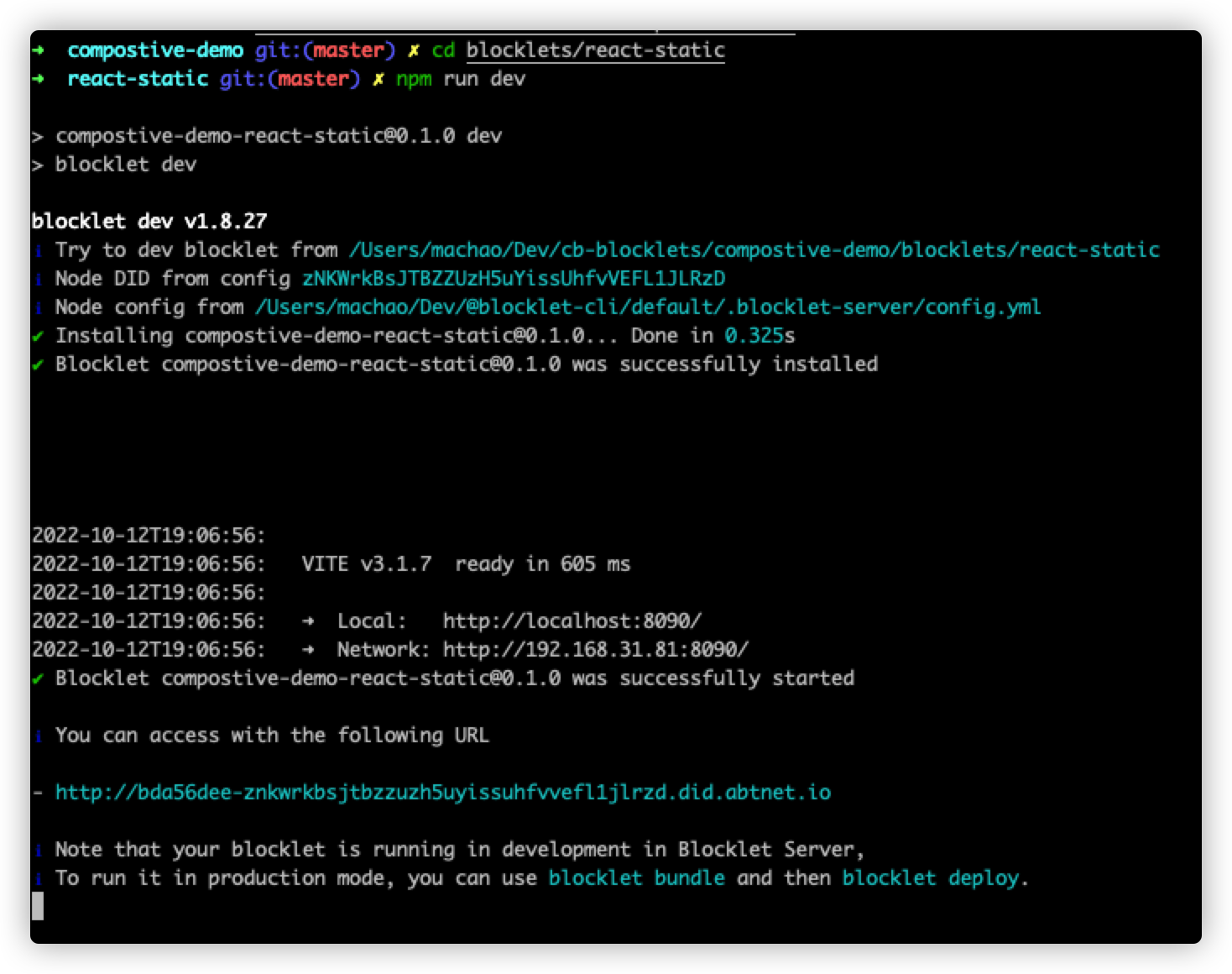
Start the child application#
When the main application is successfully launched, execute the npm run dev:child command in the other blocklets directory in turn to mount the other blocklets to the main application.
In the administration page of your local blocklet-server instance, we can visualize the mounting relationship between blocklets: react-static as the main app, vue-static, express-api as children mounted on the main app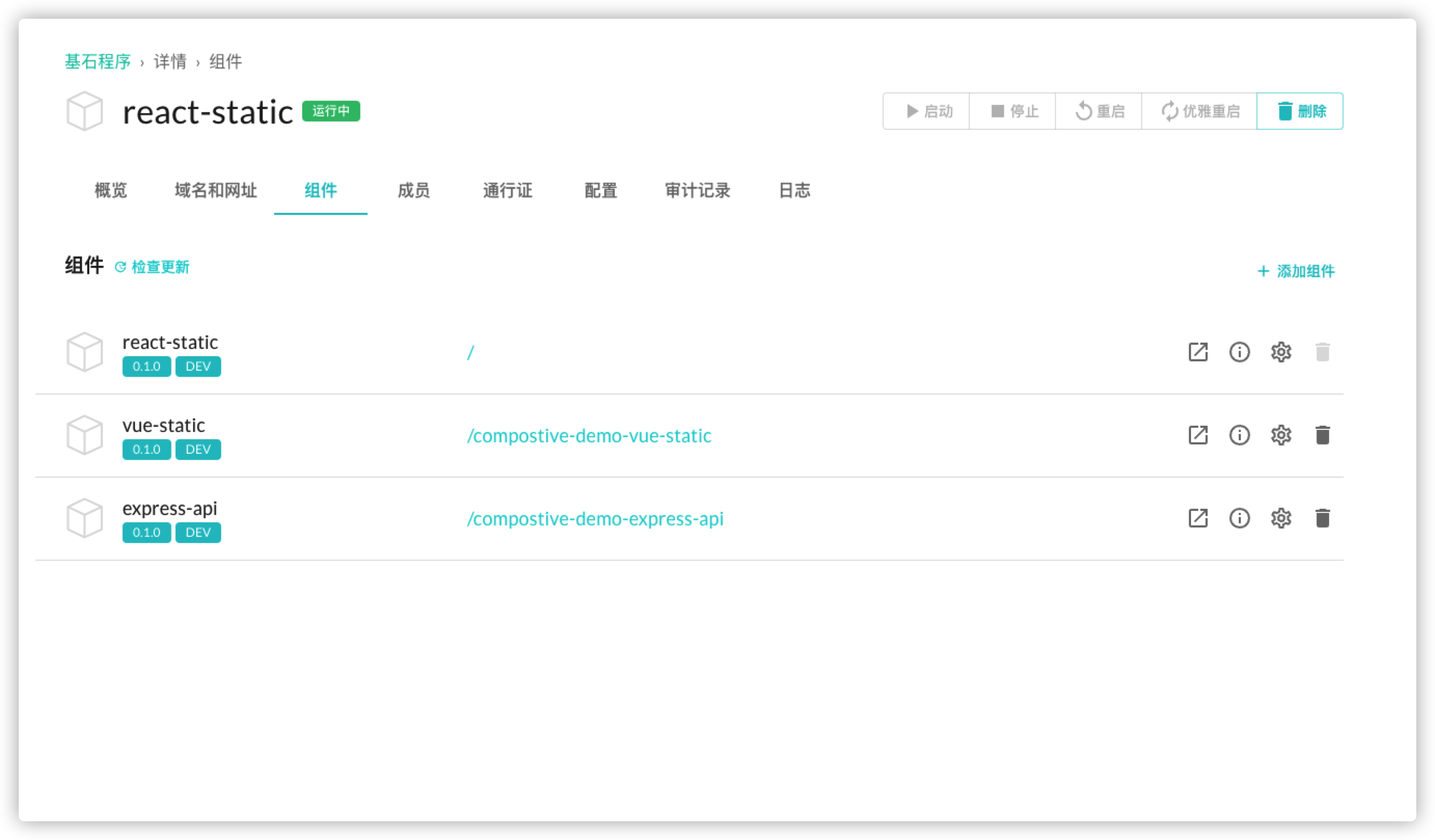
Update the navigation of the portfolio application#
The application's navigation will be displayed in the page
Configure navigation in the application's blocklet.yml
navigation:
- title:
en: Vue page
zh: Vue 页面
link: /compostive-demo-vue-staticRemember the [unified configuration and UI] we mentioned at the beginning of the article (what is a combined app)? We do this by using a unified UI component in each application's page for the configuration in navigation, which we show in a react type application using @blocklet/ui-react.
First install @blocklet/ui-react in the main application, and use @blocklet/ui-react/lib/Header, @blocklet/ui-react/lib/Footer to transform the home page
// compostive-demo/blocklets/react-static/src/components/layout.jsx
import PropTypes from 'prop-types';
import Header from '@blocklet/ui-react/lib/Header';
import Footer from '@blocklet/ui-react/lib/Footer';
function Layout({ children }) {
return (
<div>
<Header />
{children}
<Footer />
</div>
);
}
Layout.propTypes = {
children: PropTypes.any.isRequired,
};
export default Layout;// compostive-demo/blocklets/react-static/src/pages/home.jsx
import { Link } from 'react-router-dom';
import Layout from '../components/layout';
import logo from '../logo.svg';
function Home() {
return (
<Layout>
<img src={logo} className="app-logo" alt="logo" />
<pre style={{ textAlign: 'left' }}>
<code>window.blocklet = {JSON.stringify(window.blocklet, null, 2)}</code>
</pre>
<Link className="app-link" to="/about">
About
</Link>
<a className="app-link" href="https://arcblock.io/docs/blocklet-developer/" target="_blank" rel="noopener noreferrer">
Learn Blocklet
</a>
</Layout>
);
}
export default Home;After the modification, you will see the following page on the home page: the navigation we just configured is displayed in the navigation bar of the coming page
At this point, you can access our dev vue sub-application by clicking vue page
Deploying a blocklet application#
When development is complete, you can deploy the application to the blocklet server using the blocklet deploy command;
The monorepo project created with the create-blocklet tool has npm script automatically configured for each blocklet, you just need to run npm run deploy to package your blocklet and deploy it to the local running blocklet- server instance
First deploy the main application : go to the directory where the main application is located, then run npm run deploy
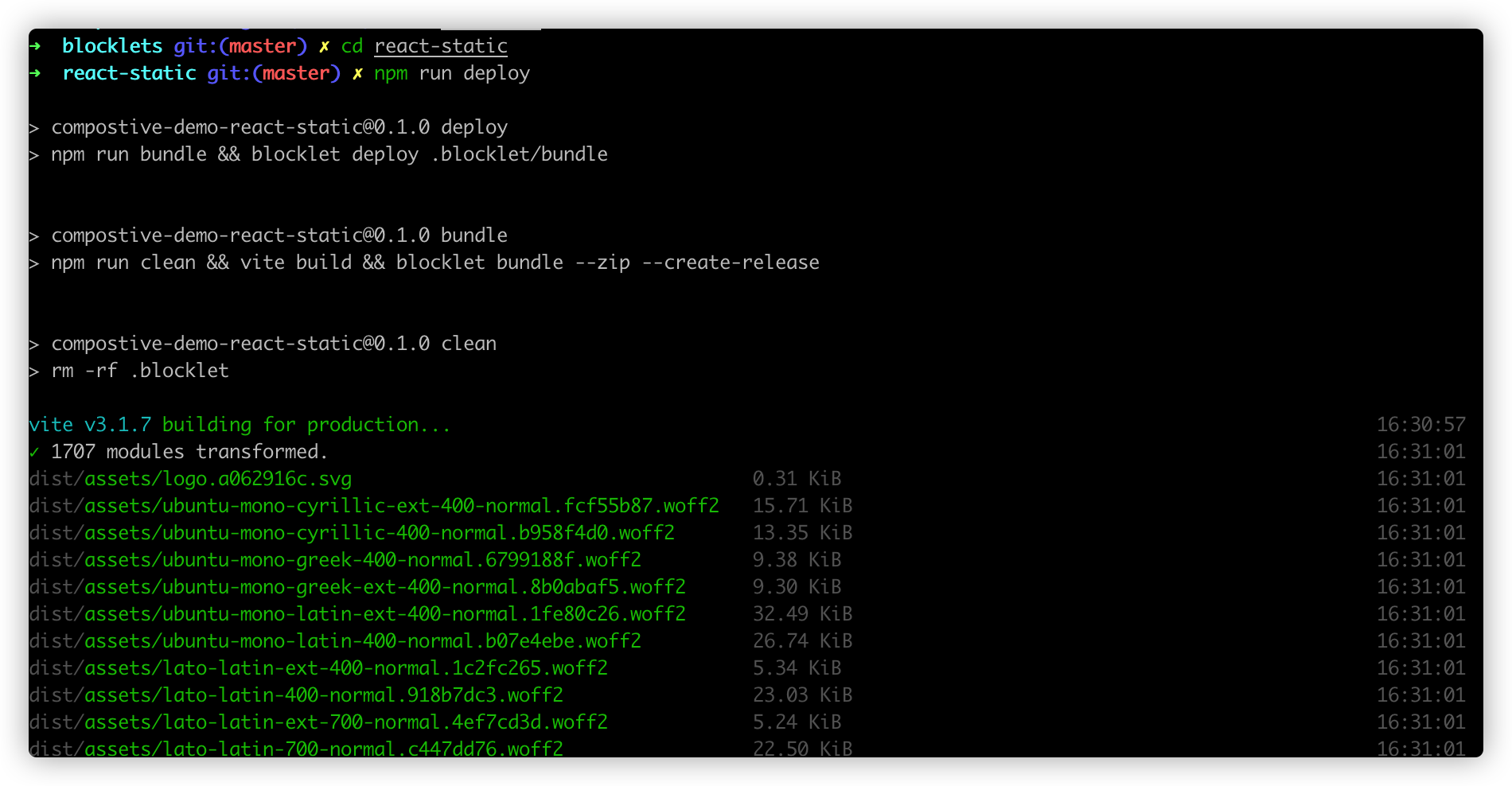
Then deploy the children in turn: go to the directory where the other children are, and then run npm run deploy:child
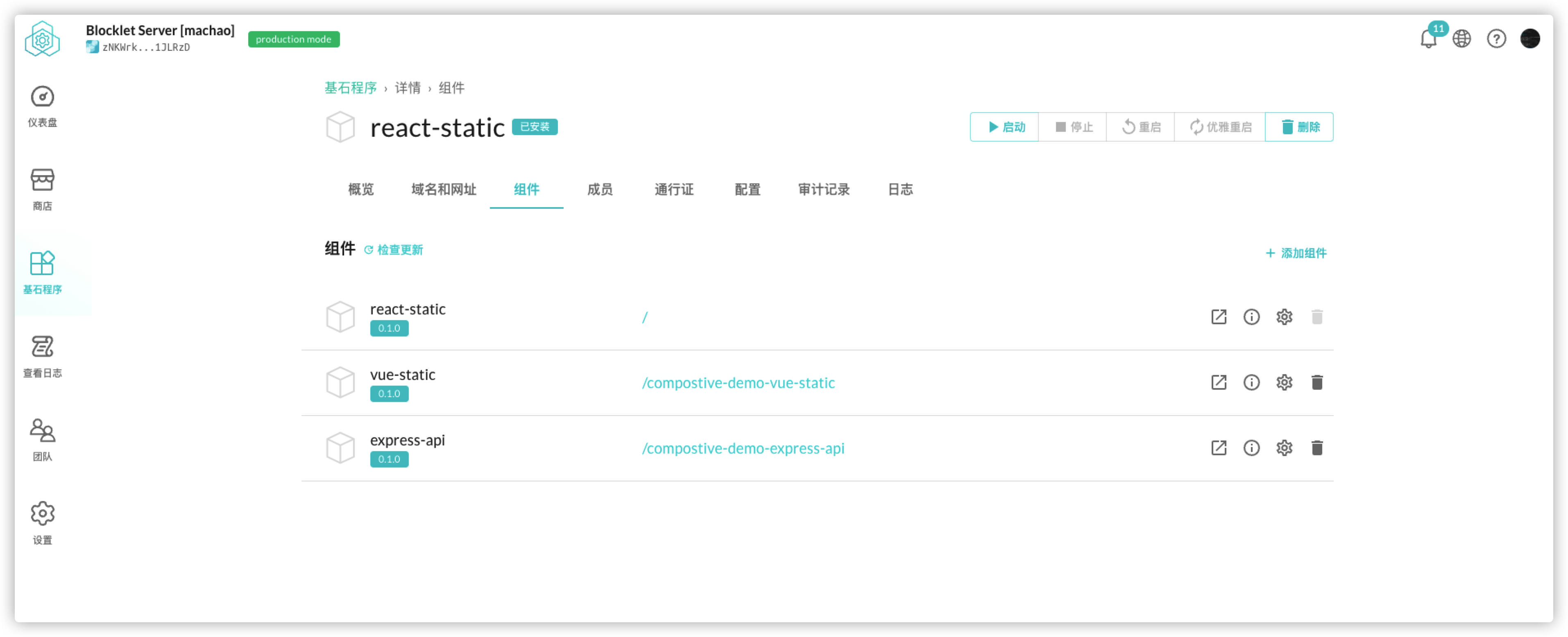
For more information about the blocklet deploy command, please refer to here